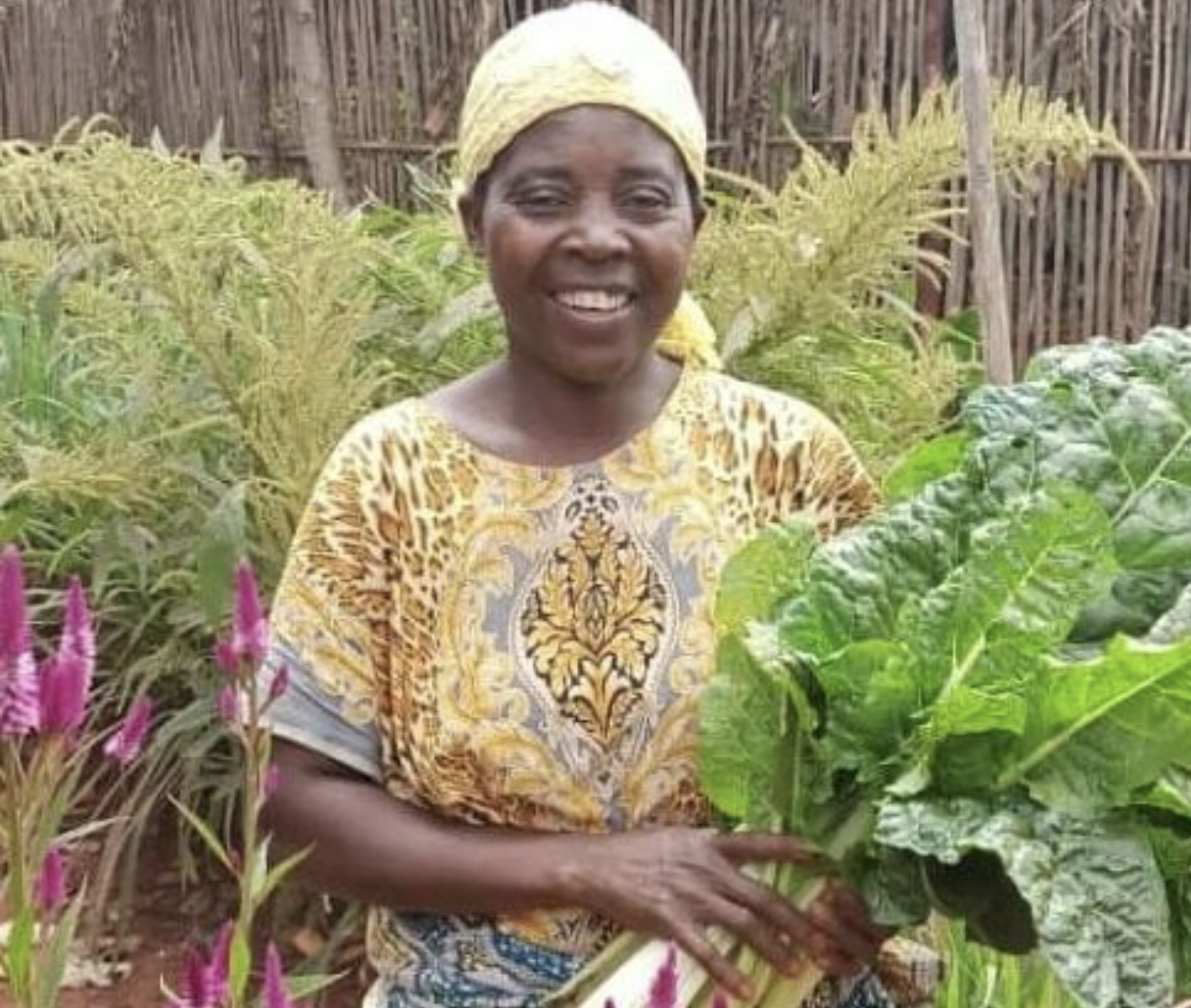Last summer, I planted some lettuce and chard on the balcony of my apartment, and enjoyed fresh lettuce on egg salad sandwiches and steamed chard with dinner.
The rising price of lettuce had nothing to do with my attempt at vegetable gardening. Instead, it was the stories of women gardeners in African contexts receiving PWRDF support that challenged me to think about how even apartment dwellers could practice sustainable gardening.
The first gardener to come to mind was Josephine Kizza. She had started St. Jude’s, an organic farming project, after she lost her teaching job and all of her possessions during the civil war in Uganda (1985-87). Although internally displaced persons like Josephine can often get staples (such as flour, rice, sugar, and tea) from aid agencies, they know that in order to have a tasty, healthy diet, they need to plant vegetables like greens, onions, and tomatoes.
The solution sounds simple enough: get seeds and access to land, then plant a garden. But, it’s more complicated than that. Josephine says that African women do 60-80% of the agricultural work, but that their traditional foodways also harm the environment. That is, rural African women cut down trees to provide fuel for cooking, and also to make charcoal to provide some cash income. Moreover, during the COVID-19 pandemic, many urban folks returned to rural areas, so cooking for more people led to even greater deforestation.
Consequently, agricultural educators like Josephine started placing an emphasis on agro-forestry, specifically, on planting trees. But even that had its problems, because men assumed that they owned the land and were the primary decision makers. For example, after a farmer named Amelia planted almost an acre of trees and made ridges to prevent erosion on her property, her husband came home from his job in the city and cut down most of the trees. However, after Josephine and Amelia discussed the rationale for Amelia’s farming methods with Amelia’s husband — who had had other plans for “his” fields — he understood and eventually became the strongest supporter of her new farming methods.
Similarly, Laliya Atondo, a Congolese woman living in a refugee camp in Tanzania, faced her husband’s criticisms when she joined a Church World Service (CWS) project supported by PWRDF. However, after Laliya bought some clothes – including a shirt for her husband – with the money she earned from selling vegetables, he became supportive of her gardening efforts. Laliya was initially afraid to become a lead farmer because she thought leadership was for men, but the training she received through CWS helped her develop the skills and confidence to teach other women about sustainable vegetable growing, integrated pest management, seed selection and storage, nutrition, and gender equity.
A few lettuce plants on my balcony will not reduce global warming nor feed the world’s hungry, but they will continue to remind me to support the Primate’s World Relief Development Fund as it enables the gardening efforts of women like Josephine, Amelia, and Laliya.
For more information, follow this link:
https://pwrdf.org/climate-change-and-gender/


